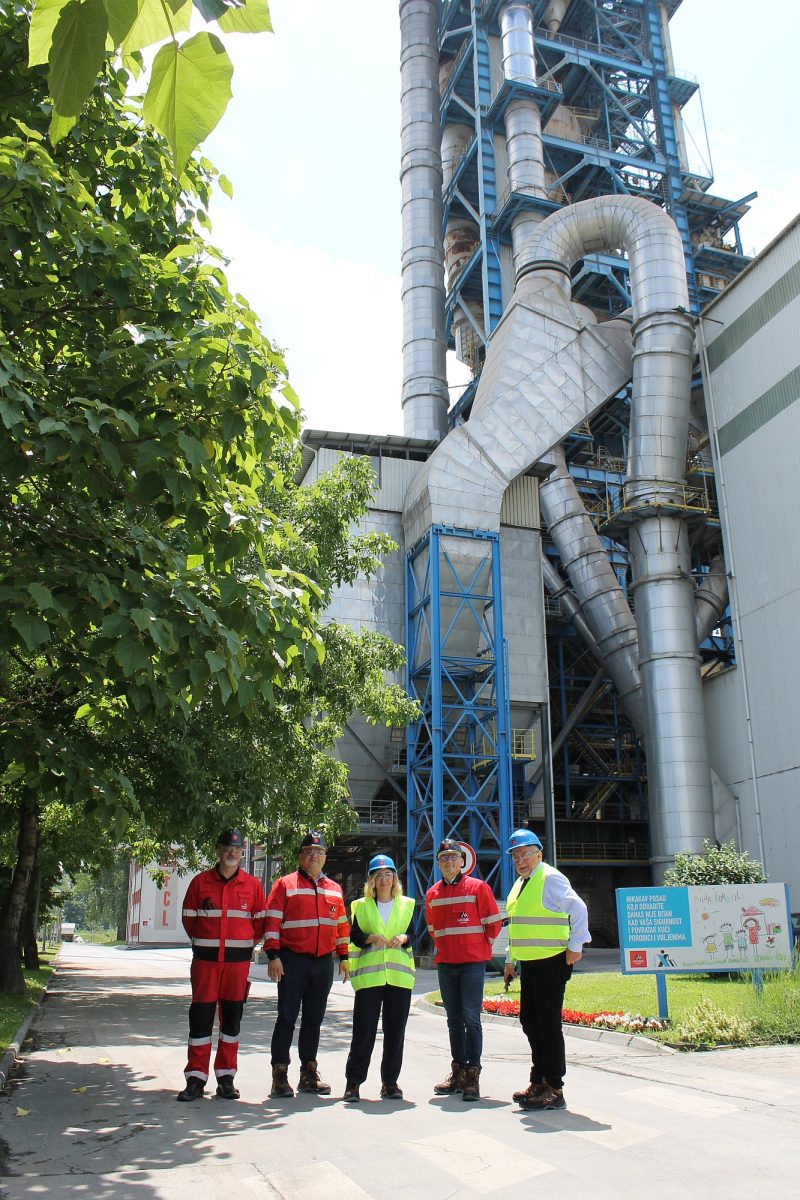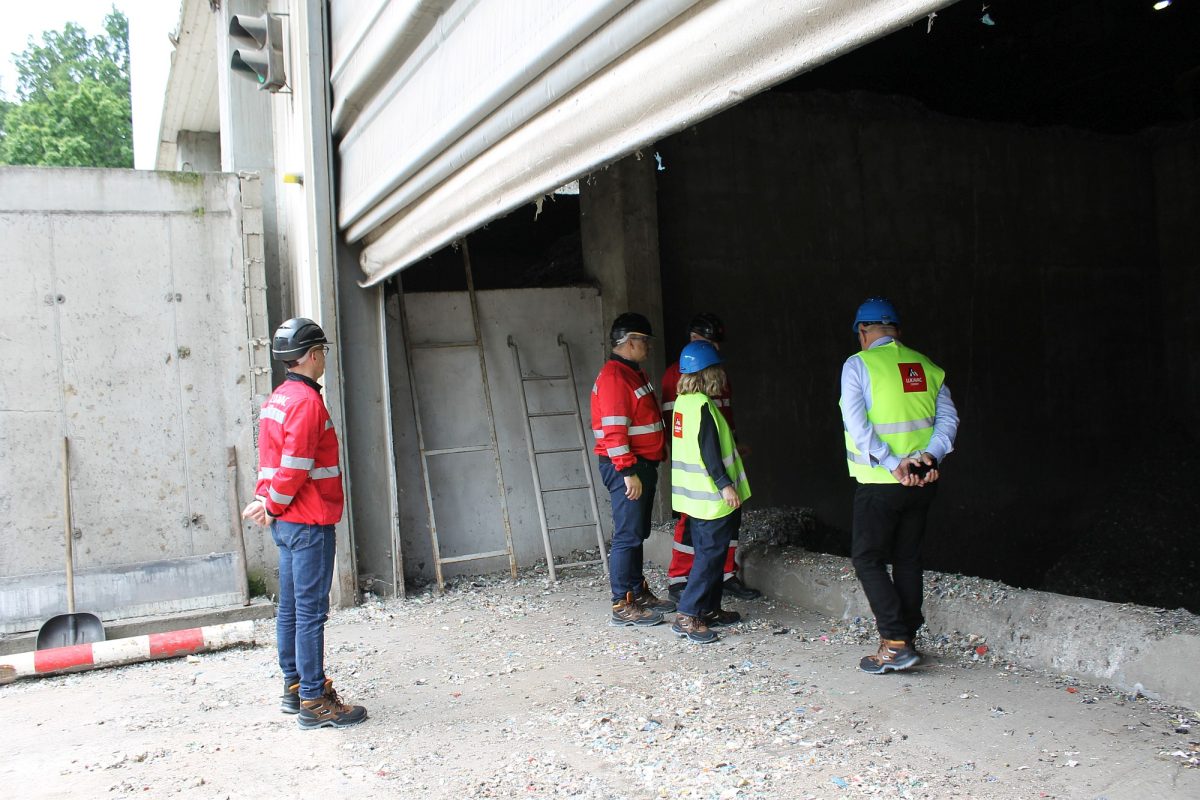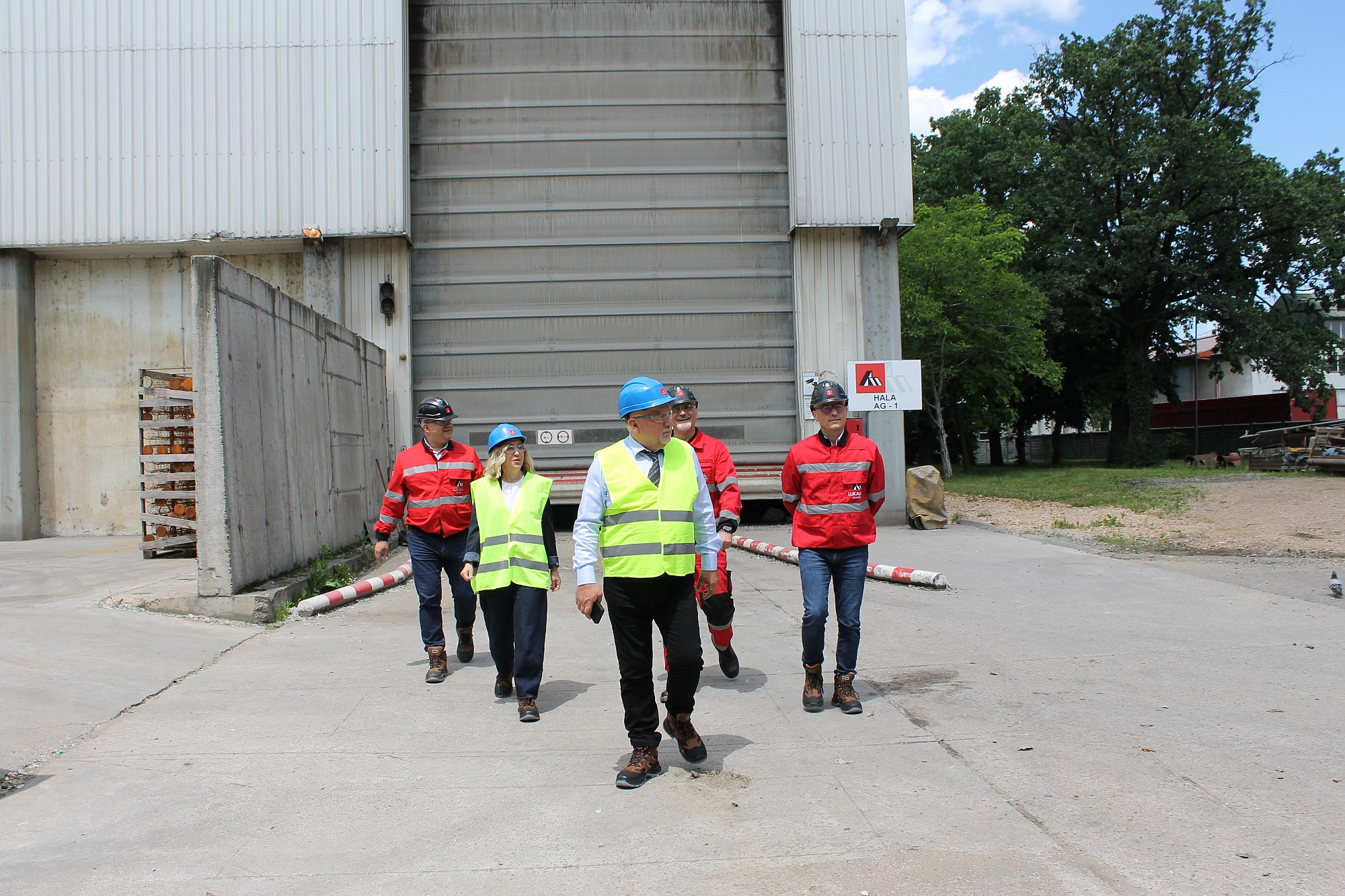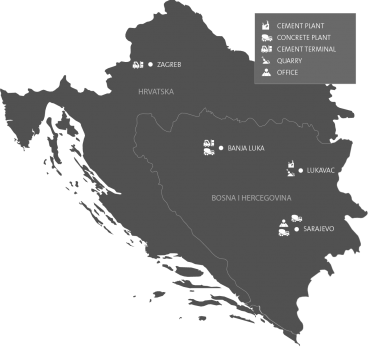MINISTER POZDER VISITS LUKAVAC CEMENT
Yesterday, the management of Lukavac Cement hosted representatives of the federal Ministry of Environment and Tourism, led by Minister Pozder, for a working visit to the Lukavac cement factory. The visit’s objective was to familiarize the newly appointed minister with the cement production process and the responsibilities Lukavac Cement has in compliance with strict environmental standards.
As a leader in alternative fuels utilization, Lukavac Cement boasts a substitution rate of over 50% for fossil fuels with waste-derived alternative fuels. Representatives from the Ministry toured the facilities, gaining insights into the handling, storage, dosing and usage of RDF and SRF, alternative fuels sourced from municipal and industrial waste.
The cement industry in BiH has seen a significant transformation with millions of investments directed towards transitioning to these alternative fuels and contributing to the country’s economy decarbonization process. Lukavac Cement expressed interest in collaborating with both private and public sectors to initiate the production of waste-derived fuels of the required quality for the cement industry in Bosnia and Herzegovina, as there are currently no established facilities for such production.
The visit also included discussions on the Ministry’s activities in preparing a legal framework and the expectations from the domestic economy after establishing the CBAM greenhouse gas payment mechanism.
At the yesterday’s meeting, possible economic participation in Ministry working groups focusing on energy efficiency and waste management were discussed, as well as joint efforts to raise awareness about the benefits of closing city landfills and establishing waste-derived fuel production.
The meeting concluded that fulfilling the requirements of the Sofia Declaration and the obligations of the contract signed with the Energy Community would require dialogue and cooperation between the state, entities and companies. The ultimate goal is to support the sustainability and competitiveness of the BIH economy through state institutions.







